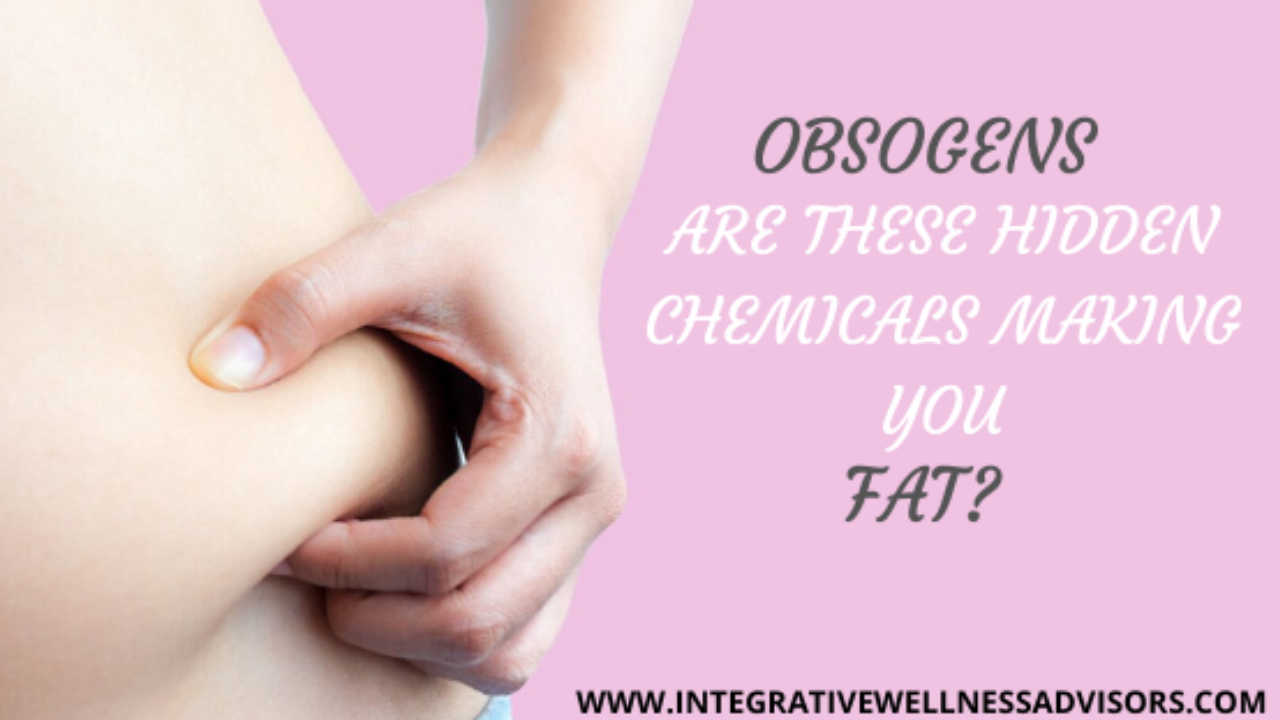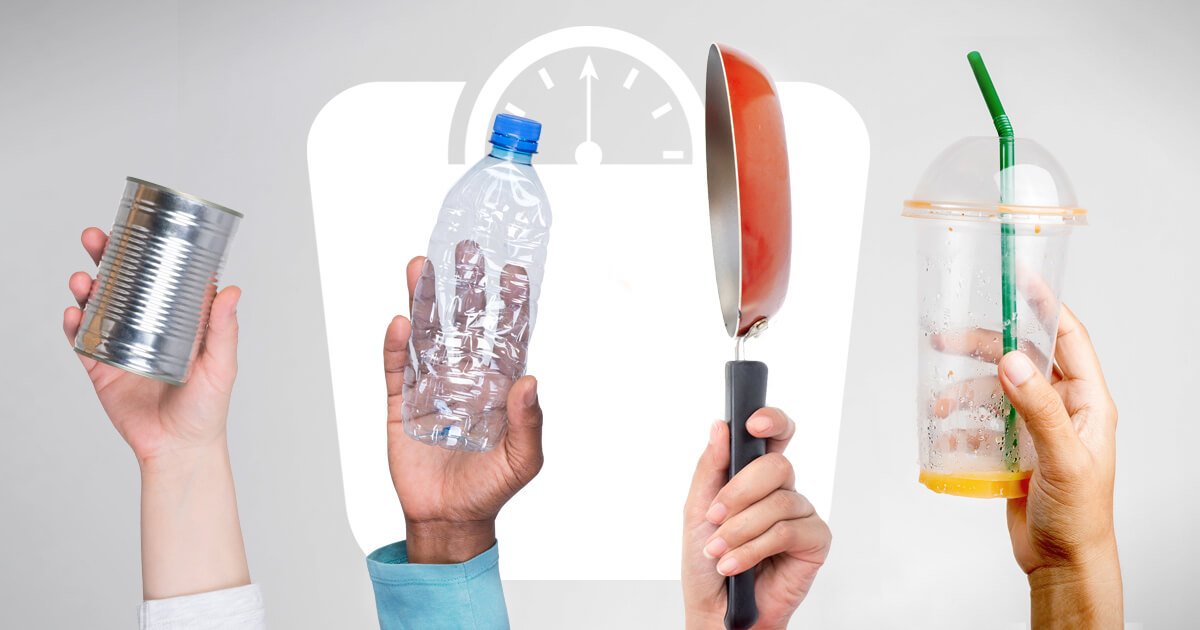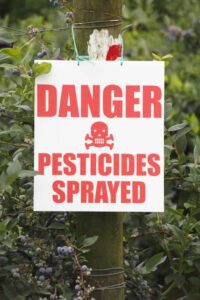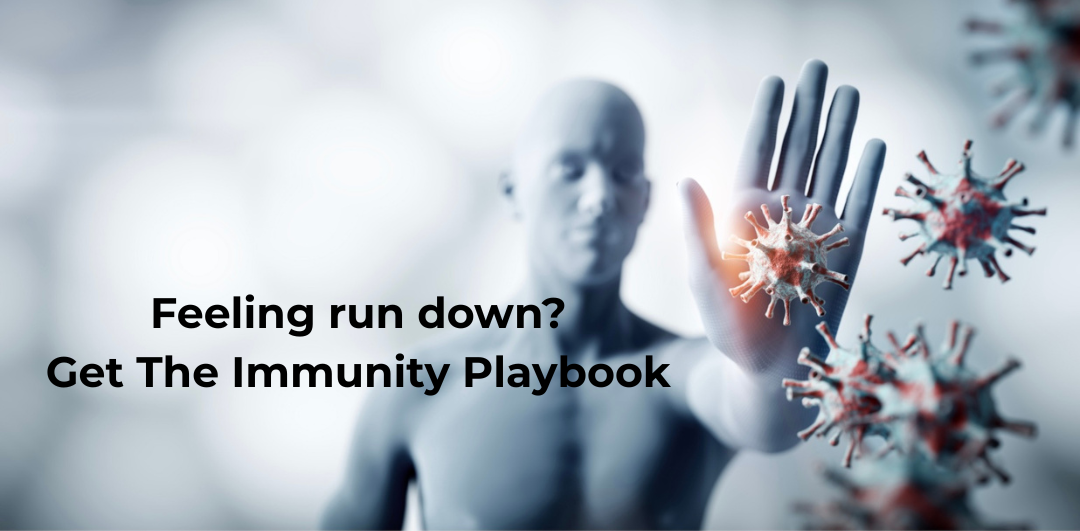Are These Chemicals Making You Sick?
Apr 23, 2021
Are you eating fairly well and getting regular exercise but still unable to maintain a healthy weight? Ever wondered why that might be? (Of course, you have!)
Ask yourself the following:
- Have you gained unexplained weight despite making healthy food choices & movement?
- Do you get migraines or headaches?
- Do you struggle to focus?
- Are you suddenly having unexplained rashes/breakouts?
- Are you struggling to lose weight?
- Are you having awful periods or having trouble getting pregnant?
- Are your hormones unbalanced?
- Do you just not feel as good as you used to and you’re not sure why?
If you answered yes to any of the above, the cause could be man-made chemicals called obesogens that disrupt your hormones and have been linked to obesity, birth defects, and more.
WHAT ARE OBESOGENS?
Every day our bodies are being hijacked by man-made chemicals that disrupt our hormones. Obesogens – known as endocrine disruptors – are found in tons of products we use each day. These chemicals interrupt our metabolic processes slowing your metabolism and predisposing you to weight gain. And since obesogens are endocrine disruptors, they mimic the body’s natural hormones – especially estrogen – causing great confusion in your body.
Consider these stats:
- Fertility problems affect 1 in 6 women.
- 10% of women have PCOS.
- 75% of the over 50 MILLION Americans who have autoimmune disease are women.
- Endometriosis, PMS, fibroids, and menopausal issues are more common than ever.
Clearly, something is wrong with this picture!
HOW OBESOGENS AFFECT THE BODY
Obesogens have several effects on the body which include:
- Mimicking hormones and confusing the heck out of your body.
- Making you hungry all the time by messing with your hunger signals.
- Encouraging the body to store more fat AND create more fat cells by reprogramming stem cells.
- Inhibiting fat burning making losing weight that much harder.
- Causing the liver to become insulin resistant, which equates to your body pumping out more insulin to compensate, leading to increased fat storage in your body.
Yikes! And these bad guys are all over the place – it’s not a question of IF you’re being exposed, it’s how MUCH you’re being exposed to on a daily basis. Let’s take a look at the obesogens changing your body every day.
KNOWN (AND SUSPECTED) OBESOGENS

Okay, guys. Get ready because the list is LONG.
- High fructose corn syrup: You know this one! A sweetener made from corn starch, which the average American eats a pound a week of because it is in almost all packaged food products. Check your labels!
- Genistein: Found in a number of plants, but soybeans and soy products like tofu and textured vegetable protein are the primary food source.
- MSG: Another one you should be familiar with – monosodium glutamate is used in the food industry as a flavor enhancer, particularly in Asian foods, soups, and gravies.
- Nicotine: In case you needed yet another reason to ditch the habit.
- Chorphyrifos: A neurotoxic pesticide used widely in the U.S. agriculture industry.
- Diazinon: Another pesticide used to control insects on crops.
- Atrazine: One of the most commonly used herbicides in the U.S. (it’s been banned in Europe for over a decade because of groundwater contamination!)
- Bisphenol-A (BPA): Yet another you’ve likely already heard of – a synthetic compound found in many types of products, including baby bottles, plastic food and beverage containers, and metal food cans. More than 90% of people have BPA in their system.
- Phthalates: I’ve talked about this one before HERE. Also known as the “Everywhere Chemical”, phthalates are chemicals used to make plastics soft and flexible. They are found in various products, including food containers, pacifiers, toys, pharmaceuticals, shower curtains, paint, and personal care products such as soap, shampoo, hair spray, and nail polish.
- Perfluorooctanoic acid (PFOA): This one is a synthetic compound found in non-stick cookware such as Teflon and microwave popcorn. PFOA has been found in the blood of more than 98% of Americans.
- Triclosan: Hand sanitizers, soaps, and toothpastes often add triclosan for its antibacterial properties, but studies on animals have shown that it negatively impacts thyroid function.
- Polybrominated Diphenyl Ethers (PBDE): This chemical is found everywhere. You’ll find it in consumer products such as home, automotive, and electronic products that need to be flame-retardant; high-fat foods and fish; drinking water; and in the air due to dust from products containing it.
- Polychlorinated Biphenyl Ethers (PCB): Used as plasticizers in many paints, plastics, and rubber products.
- Lead: Less prevalent than it was in, say, the 70s, you’ll still find lead in the air, water, soil, and sometimes still in homes.
- Benzo(a)pyrene: This chemical is found in fumes such as from residential wood burning, auto exhaust (especially diesel engines), cigarette smoke, and charbroiled food.
- Fine particulate matter: A mixture of solid particles and liquid droplets found in the air usually from construction sites, unpaved roads, fields, smokestacks, or fires.
- Estradiol: The standard synthetic estrogen prescription given in hormone replacement therapy.
LOWER YOUR EXPOSURE

So. That’s some scary stuff. Now, here’s the important question – how can you lower your exposure to obesogens if they are LITERALLY everywhere?? While you can’t avoid it all, you can do the following and minimize your risk.
- Avoid using plastic containers.
- Avoid plastic water bottles. Use reusable stainless steel or aluminum bottles instead. Likewise, don’t use plastic baby bottles, stick with glass!
- Replace non-stick cookware with cast iron or stainless steel.
- Choose organic whenever possible. Whether it’s food or beauty products, going organic will help greatly.
- Go with non-toxic household cleaners.
- Clean your house regularly, especially vacuuming and dusting. Use a vacuum with a HEPA filter if able and dust with a damp rag so dust isn’t pushed into the air.
- Read clothing labels. Some clothing is sprayed with flame retardant.
- Wash your hands!
IMPROVE HOW YOUR BODY RESPONDS TO OBSOGENS
Okay, you’re probably saying, limiting exposure is fantastic but is there a way to change or improve how my body responds to these chemicals in the first place? The answer is yes! Detoxification is key to improving how your body responds to obesogens.
I talk about detoxification A LOT because it really does a body good. A few key items include eating your leafy greens and veggies, limiting alcohol consumption, consuming probiotics, and eating foods high in folates such as beef, asparagus, brussel sprouts, black-eyed peas, and avocado. There are also herbs & supplements that can help support your liver and detoxification – reach out to me if you’d like recommendations.
The chemicals surrounding us may seem overwhelming and a little frightening, but there are ways to reduce your exposure and improve your health regardless.


